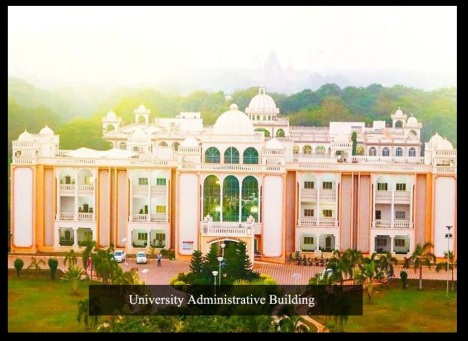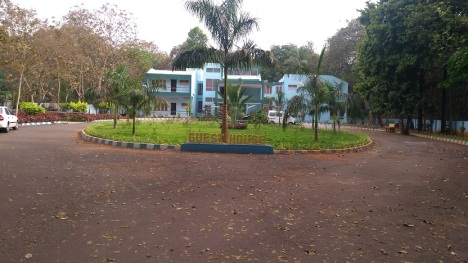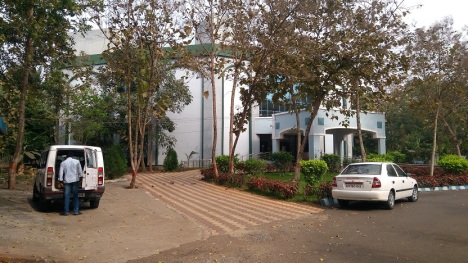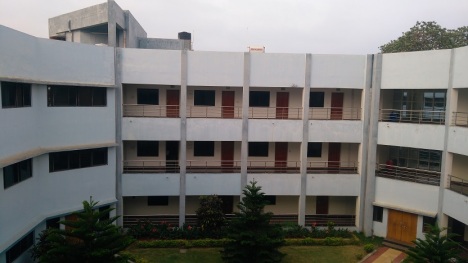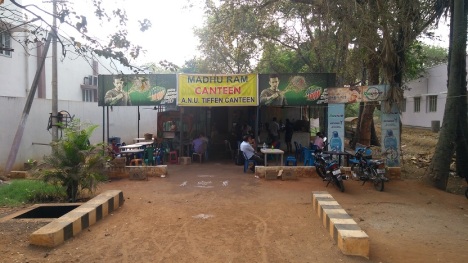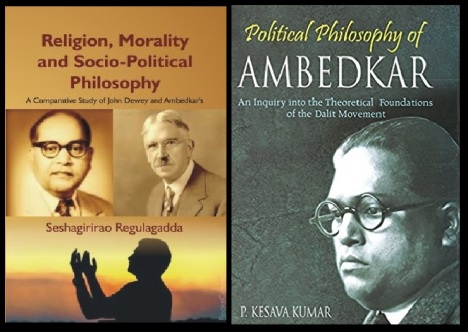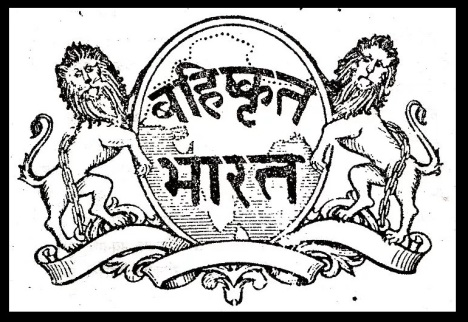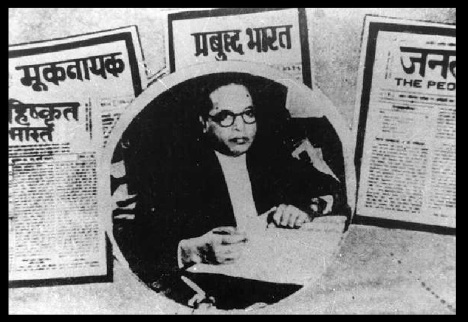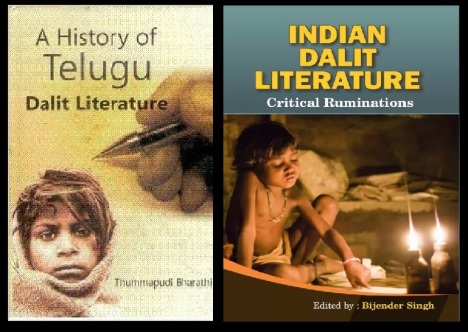Proceedings of the National seminar “Impact of Dr. B. R. Ambedkar’s Philosophy on Indian Literature” held at the Acharya Nagarjuna University on March 28th and 29th 2018 (2)
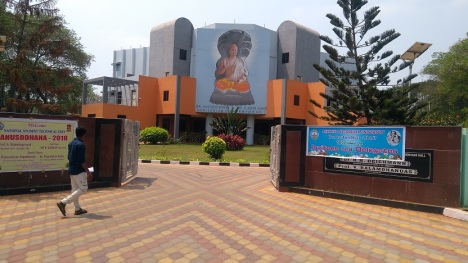
Ambedkar seminar- hall entrance
28-03-2018 – the first day proceedings: Morning, got up by 4.00 am and looking for any delegate who had come for the seminar. I was informed that two more would join me in my room, particularly, one Partha Dey would arrive at any time, but, he did not turn up. Getting ready, I sat in the entrance as usual and then enquired about the members, if any, came for the seminar. I saw one “Sikamani” coming there by 9 am, and I thought, he could be from Tamil Nadu. He went away, responding to second floor. A vehicle came by 10.30 am to take to the venue, where the seminar was held – “Dr H. H. Deighmann[1] & Dr S. John David[2] Auditorium cum Seminar Hall.” Simultaneously, Engineering College students were also conducting their programme.
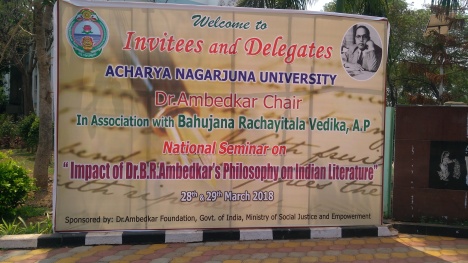
Seminar board kept at the entrance on LHS
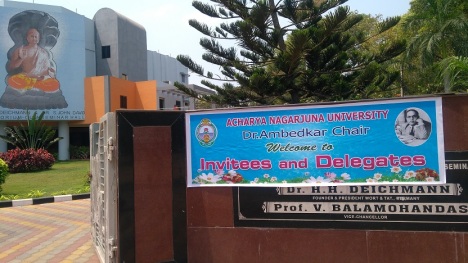
Inviting the delegates – ANU – Ambedkar seminar- hall entrance.board-RHS.
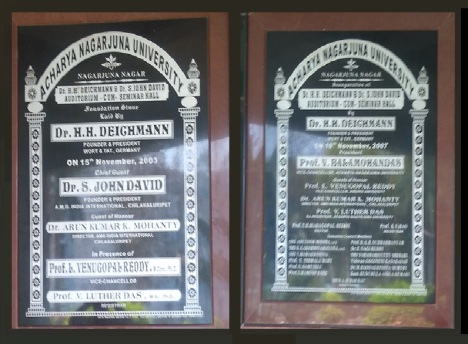
ANU – Ambedkar seminar- hall AMG
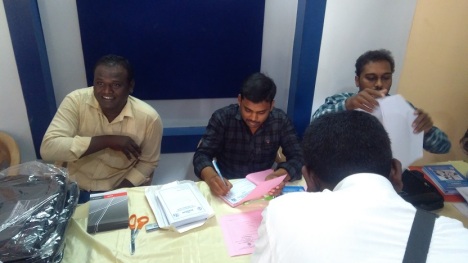
ANU – Ambedkar seminar- registration for the delegates
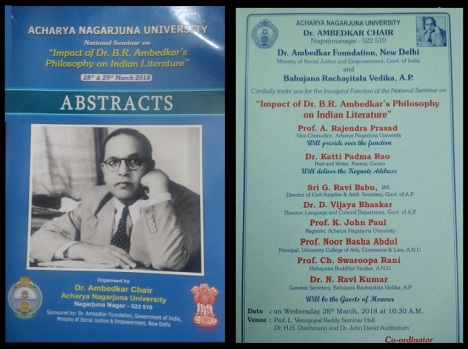
Absract volume and invitation to the Seminar, many VIP-invitees did not turn up
Inauguration of the seminar: After registration, we were sitting the seminar hall, evidently some VIPS to come. By 11.44 am, the inaugural function started. One Katti Padma Rao [hereinafter mentioned as KPR] came and the function started. K. Sanjeeva Rao (also known as Sikamani), C. H. Swarupa Rani and N. Ravikumar were on the dias. University anthem was played and all stood up, but, not Katti Padma Rao. This made me to recall the controversy of “Sankaracharya,” when he did not stand up when “Tamiz-thai-vazthu” [Invocation song of Mother Tamil] was sung in a function at Chennai[3]. Ambedkar photo was garlanded and lamp lit. The “Abstract volume” was released. A book written by KPR was released by Sikamani. A magazine was also released by KPR and copy received by Sikamani.
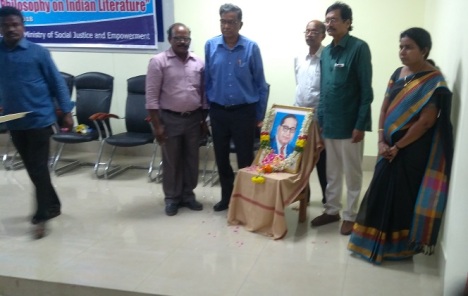
Garlanding Ambedkar photo- inaugurating the seminar
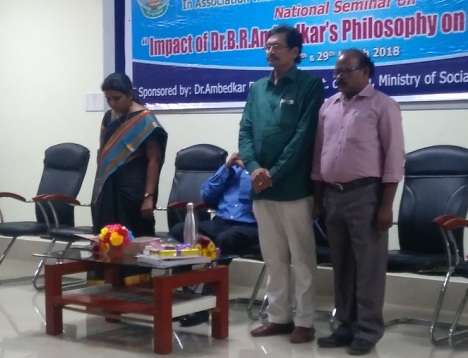
KPR was sitting during University anthem sung
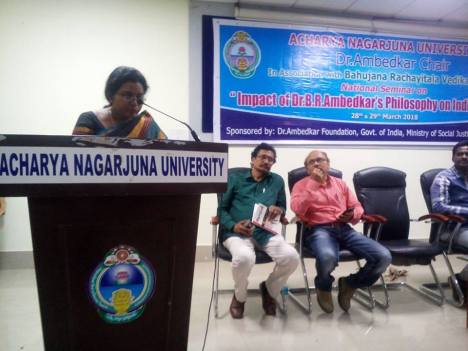
Swaruprani-inaugural function, explaining the background of the seminar
The purpose and background of the Seminar explained: 11.53 am: Swarupa Rani [Mahayana Buddhist Studies, ANU] explained the background of the seminar, “….as Sikamani, Ravikumar wanted to bring like-minded people together to discuss about the “impact of Amedkar philosophy on Indian literature.” ……Now, “Dalit literature” is produced in Maharastra, Tamilnadu, Kerala and other states and the driving force behind such literature has been Ambedkar……. S, Murali Mohan, Ravikumar sat together and decided to conduct the seminar, as there was no seminar conducted in this perspective. ……..Some important Dalit researchers, writers, poets and others would participate next day also”.
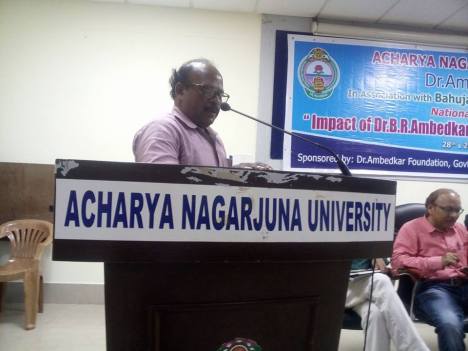
Ravikumar explaining about the seminar proposal etc
12.05 HRS: N. Ravikumar explained in this way, “So far Communist philosopy of all sorts have been dominating the India Literature since 1930…Marx philosophy, Mao philosophy and ….others were dominating, but not Ambedkar philosophy….In fact, Ambedkar philosophy is considered as Indian philosophy…every aspect of Ambedkar has to be interpreted….”
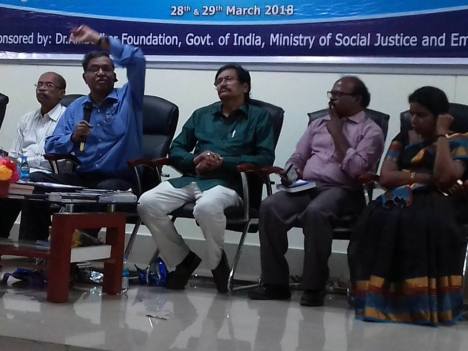
Ambedkar seminar, ANU, 2018- Kathi Padma Rao-inaugural talking in his own way
The keynote address of Katti Padma Rao: 12.11 pm: KPR started talking in Telugu, “Buddha was a preacher, after Buddha Sankara, Madhwa and Ramanuja came, but they were adhyatmikawadis…….Ambedkar wondered why there was no philosophy in India…to discuss Indian philosophy, one has to discuss tarka, mimamsa, bhashya…Rigvedam that was in Sanskrit came from heaven, but taken by Brahmins….that is how Pani said…in this way it is taught….it is nonsense that peacocks were dancing at the Himalayas….[4]by the Brahmanical Dalit Group…but, that is not philosophy……Mother is guru, as she teaches child not only language but everything..no Brahmin could oppose Ambedkar’s philosophy..what is Purusha sukta, who would believe such nonsense..Vedas were written by Rishis born of men only..the “kumbasambava” stories are myth…when Ramba, Urvasi, Menaka were looked at and semen oozes out and that fell …by which babies were born…are stories…if that is the case, more babies could be produced…Krishna was having 16,000 ladies, if he was with each lady, how many days he would have taken? After 44 years only, he could come back to the first lady… Why Agni, Varuna etc., should be invoked to kill men?…..Ambedkar pointed out in his book “Who were Shudras?”….Ambedkar told Brahmins to learn English and rise and that is why they learned and went to America..I challenge if there is a great man other than Ambedkar, I will give Rs one crore……..I am a Christ Bakta[5], (sings a Christian song) …Ambedkar used to wear 20 dreess material, apply perfumes….he kept 80 sets of shoes / boots….Christians became clean by applying soaps long back…..but not Brahmins, as they were dirty with kumkum, turmeric, varieties of prasad and so on… Ambdedkar revised his theses three times to get PhD ….thus one has to work hard.”
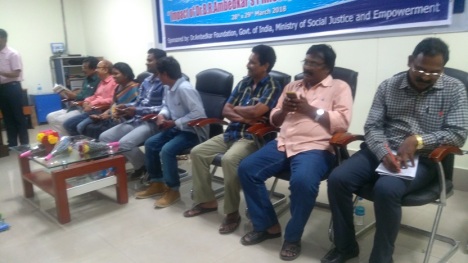
First session of paper presentation, all in Telugu
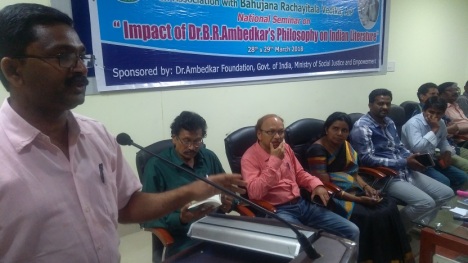
ANU – Ambedkar seminar- VIPs talk.
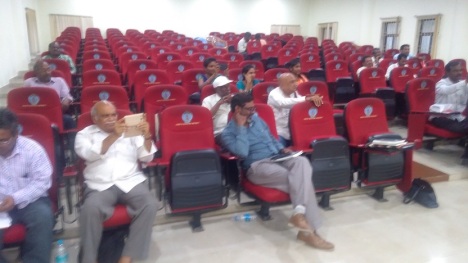
Ironically, the poor audience makes researchers worry about the academic proceedings
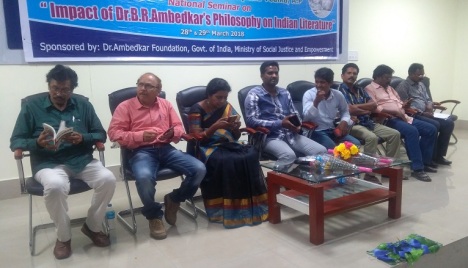
ANU – Ambedkar seminar- VIPs talk.
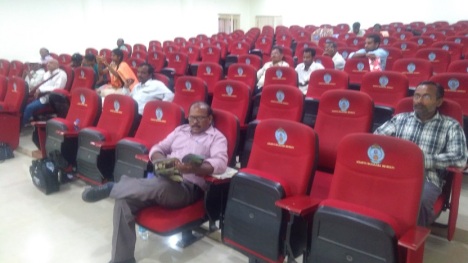
Ironically, the poor audience makes researchers worry about the academic proceedings
1.53 pm: Vote of thanks. All had gone for lunch.
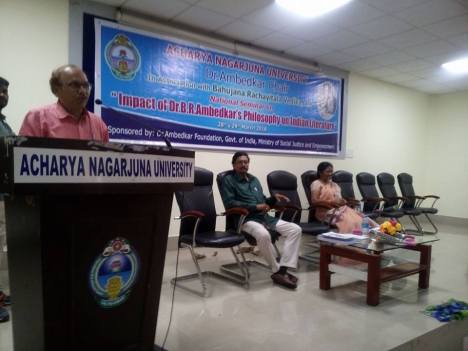
28-03-2018 – Paper reading session: 3.00 pm: After lunch, the session started with the talk of Gutur Lakshmi Narasimha, in which he pointed out speaking in Telugu, “….about the prevalence of confusion to differentiate between “Marxism” and “Ambedkarism.” ….As most of the Ambedkarites have been either ex-communists or with Communist background, many times, they use such terminology and the users and as well as listeners and readers get confused…… The class struggle and caste struggle in the context of economic and political contexts confuse them. Marxists have been claiming that they have been only educating SCs, Ambedkarites and dalits…… All poor people need not be mala or Mathika caste, as whenever, dalits are targetted, only their houses are burnt, but, not that of others. Therefore, dalits have to understand their political enemies and social enemies…Ambedkarism mixing with Marxism also creates confusion..calling it as “vipulavadam.”…there have been problems between SCs and BCs also.”
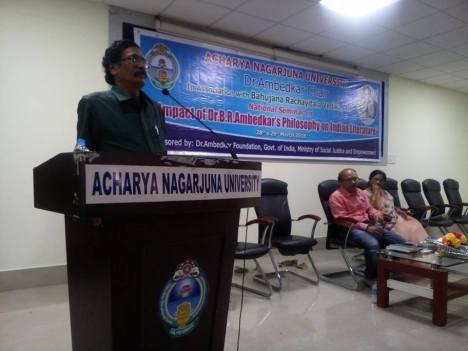
Ambedkar seminar, ANU, 2018- Sikamani-inaugural
3.40 pm: Sikamami pointed out speaking in Telugu, “The impact of Gandhi has been more on the Harijans than that of Ambedkar[6]…… “Ambedkar Suprapadam” has also been introduced to attract dalits[7].. Ambedkarites should take Buddhism as the path to fight”
4.20 pm: Sridevi from Dravidian University rendered in Telugu almost verbose oratory in Telugu repeating the points again and again.
5.10 pm: After tea break, G. Seshu presented his paper[8], “A study of the underprivileged: In the select Novels of Kaveri Nambisan.” She spoke in Telugu briefing the paper as to how the author being a doctor chose to work in remote areas and organized a few health oriented camps for the poor.
5.20 pm: Ankammayya Rao[9] presented his paper in Telugu on “The impact of Ambedkarite philosophy on Bharatiya tatvam”
5.20 pm: E. Harshavardhan presented his paper[10], “Text of protest, poems on context, lyrics of liberation and songs of pride: Dr Ambedkar and online virtual literature,” taking the examples of Pa. Ranjit (Tamil), Ginni Mahi (Punjabi), Somnath Waghmare (Marathi), Manj (Malayalam), Nukathoti Ravikumar, Challapalli Swaroopa Rani (Telugu).
However, LN took objection that all literature or material mentioning or referring to Ambedkar cannot be taken as an evidence of “the impact of Ambedkar philosophy” on it.
5.50 pm: Joshua[11] presented his paper, “The vision of Dr B. R. Ambedkar reflected, reminded and recollected in my father Baliah,” pointed out how Y.B. Satyanarayanan in “My Father Baliah” reminded duties of a dalit, when Baliah migrated to city, he lost his “caste identity,” but, the moment, he returned village, he was treated as the caste he belonged. However, Baliah father lived in village and achieved his principles.
Guntur LN breifing the paper presentation, pointed out, “All attack on Varnashrama dharma and caste system cannot be considered as the effect of impact of Ambedkar philosophy….Ambedkarites should not and need not be confused with the communist exploitation of Ambedkar and Ambedkar philosophy. Ambedkarism is not Communism and the philosophy is different….As long as communism is useful, the Ambedkarites can use / exploit it for their benefit.” Incidentally, though he gave 5-10 minutes for paper presentation, he took nearly 30 minutes to comment and brief about the paper presentation.
After this, there was “Kavi sammelan” in which poems were rendered in Telugu annd songs were also sung.
© K. V. Ramakrishna Rao
31-03-2018
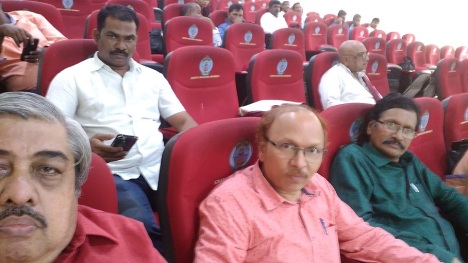
ANU – Ambedkar seminar- my selfie not so good
[1] Dr. Deichmann is a shoe business entrepreneur of Germany, who with his generous organization Wort & Tat, has vastly widened the scope of AMG India [“Advancing the Ministries of the Gospel”] services to the poor and needy. Dr. Deichmann, born to devout Christian parents – Mr.Heinrich Deichmann and Mrs.Julia Deichmann — was brought up in Christian faith and discipline and was ingrained with Christian compassion and willingness, to help needy persons. He had the same vision as Bro. John David. http://www.amg.in/index.php/donors/dr-h-h-deichmann
[2] Dr. S. John David, Founder of “Advancing the Ministries of the Gospel,” an evangelization organization – AMG. http://www.amg.in/component/content/article/24-locations/52-chirala
[3] On 23-01-2018, in a function held at Chennai , Kanchi Sankaracharya was seen sitting in “Dyana mood” while “Tamithai vazthu” was sung.
[4] Actually, he was ridiculing Meghadhuta verses. Here, Himalayas means not the “snow covered areas,” but, valley s also. Even today, in Rishikesh and other places, anybody can see peacocks.
[5] He has been a Christian and he claims so with pride, as poet or expert in literature, he must have read Christian literature also and therefore, his sarcastic and blasphemous comment against one religion smacks his calibre. He also claimed that he was Christian, studied in Sunday schools and sang songs, thus, he could get influenced to write such songs. https://www.youtube.com/watch?v=sXzCYqahpAk; His misinterpretation of Sri Venkateswara Suprapadam could be seen here: https://www.youtube.com/watch?v=kl-_fxyCuIs; His Christian association continues, as he was part of “The Christian Secular Party” – https://timesofindia.indiatimes.com/city/hyderabad/New-political-party-launched-in-Hyderabad/articleshow/30853956.cms
[6] Garada, Rabindra. “Gandhism, Ambedkarism and Marxism: An Analytical Discourse For Dalit Liberation and Emancipation.” Global Journal of Human-Social Science Research (2015). He has made a comparison among the three different philosophies.
[7] This has been similar to the “inculturation” methods adapted and adopted by the Christians exploiting the popular Hindu symbols etc. https://www.youtube.com/watch?v=ZdTfro4uiuU
[8] See Abstarcts, p.14.
[9] See Abstarcts, p.12.
[10] See Abstarcts, p.8.
[11] See Abstarcts, p.27.
Filed under: adi sankara, ambedkar, ambedkar idea, ambedkar ideology, ambedkar philosophy, ambedkar thought, andhra, Aryan, bharat, brahmasutras, brahmin, controversy, dalit, Dravida, Dravidam, dravidar, Dravidian, emotion, evidence, gandhi, gandhiji, historicity, historiography, history, interpretation, krishna, Mahabharat, Mahabharata, Mala, marginalized, marxism, methodology, myth, mythology, nationalism, non-brahmin, periyar, periyar philosophy, Ramakrishna Rao, Rohith vemula, sankara, Sanskrit, sanskrit, tamil, tamilnadu, telengana, telugu, tribal, tribe, Vayu, Veda, Vedas, vegetarian, vemula, vyasa | Tagged: ambedkar philosophy, ambedkarite, anti-brahmin, anti-hindu, brahman, brahmin, dalit, dalit Buddhist, dalit christian, dalit hindu, dalit Jain, dalit literature, dalit muslim, dalit politics, dalitastan, harijan, Kathi Padma Rao, katti padma rao, maoism, marxist philosophy, naxalism, sudra, violence, volilence | 11 Comments »


